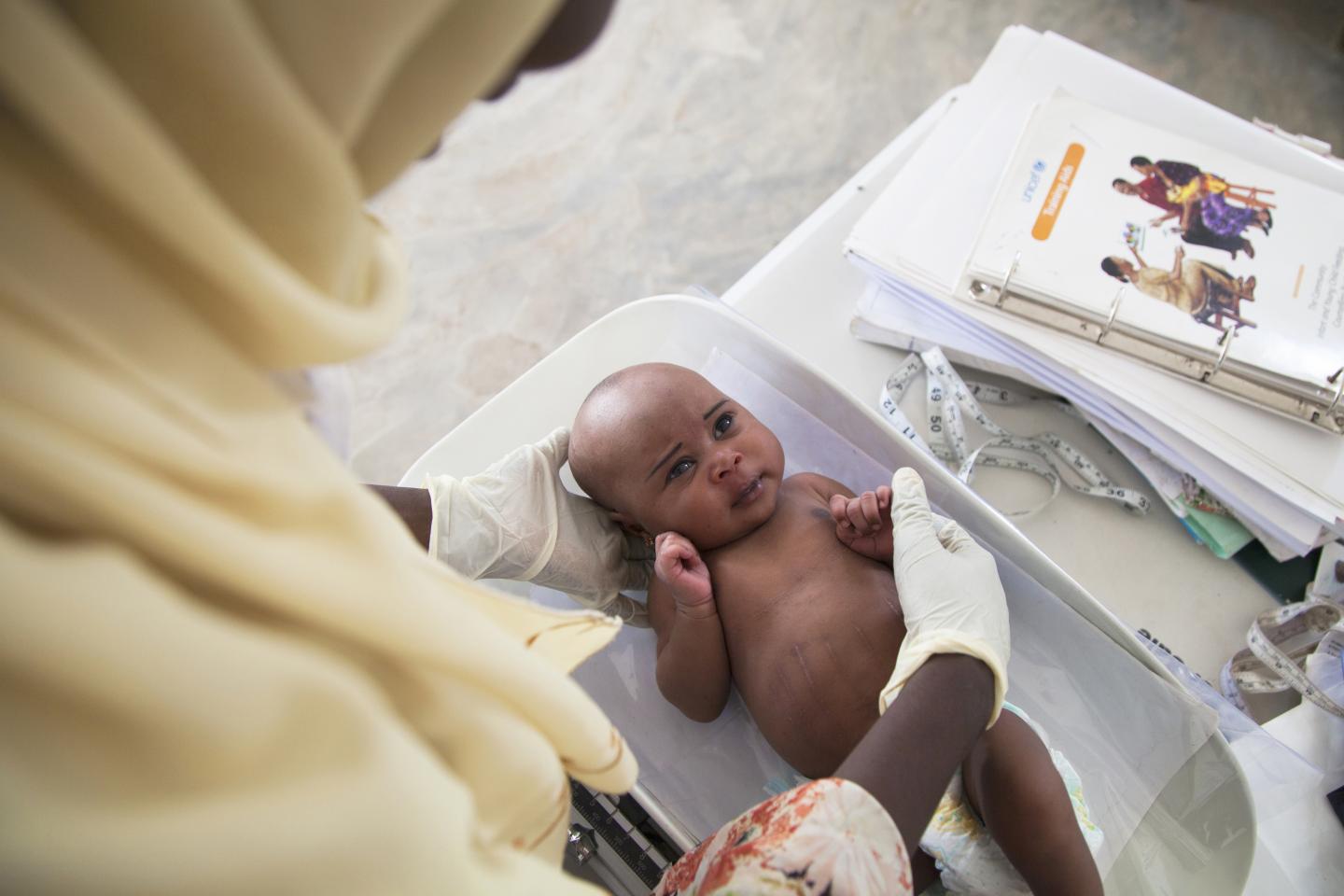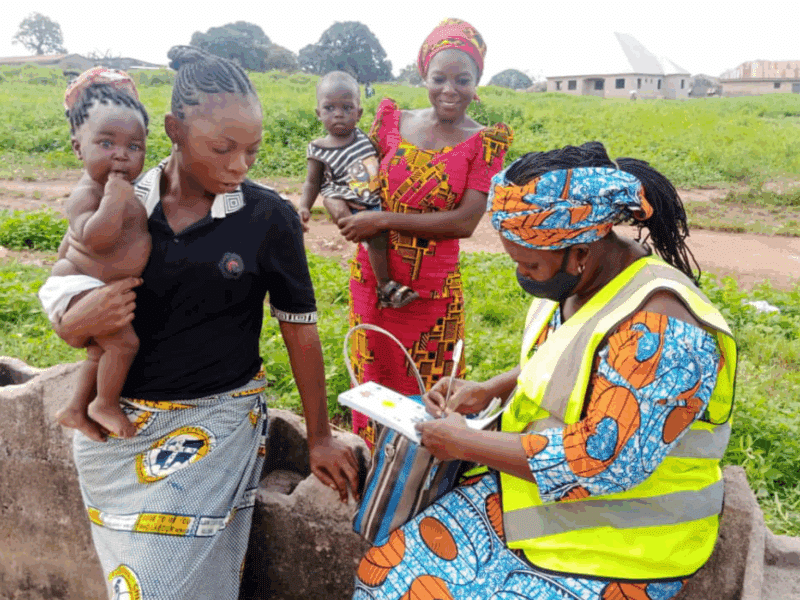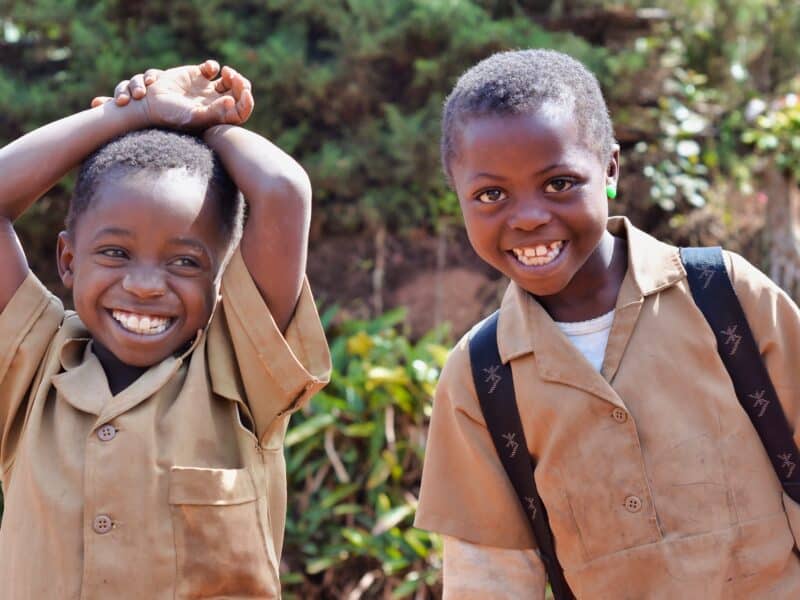In the rural hamlet of Yarbese in Northwestern Nigeria, the local health care facility provided very little for pregnant women.
Women being examined would have to lay on the bare floor or on packing cartons or a bench in order to be evaluated. There was nowhere to sit in the waiting rooms. Often, there was no health care provider available – and those who were on site were men, which cultural norms forbade from physically examining pregnant women.
“At this health facility … there was nothing in it,” says Muhammad Samma, a community leader in Yarbese. “There were no drugs, people were not coming to the health facility, pregnant women due for delivery were not coming to deliver in this facility. So, we’ve faced all those problems a lot.”
Across Northern Nigeria, many women do not access health care services due to barriers including gender and cultural norms, distance to health facilities, the inability to afford the cost of health services and the lack of supplies at the health facilities.
To address these needs, the Johns Hopkins Center for Communication Programs-led Breakthrough ACTION-Nigeria project collaborated with national and state primary health care development agencies in Bauchi, Kebbi and Sokoto states to train local government community mobilization teams and 75 Ward Development Committees.
They identified priority health care challenges including their membership and leadership composition to ensure female representation who could educate and advocate for health issues that mostly affect women.
Since the September 2019 training, the primary health center in Yarbese has recorded a remarkable increase in prenatal care visits and women giving birth in the facility. For instance, average monthly prenatal care visits increased from 28 visits in June 2019 (before the intervention) to 47 visits in October 2020.
Facility deliveries went from zero to an average of 17 a month within the same period.
Similar results were found throughout the wards, with the 75 Ward Development Committees mobilizing more than $15,000, which was used to provide and maintain emergency transport systems and water supply, improve access roads to facilities, renovate health care centers and purchase medical supplies for their local primary health care centers.
From September 2019 through October 2020, overall, the project facilitated more than 5,550 routine immunization visits for children, more than 1,770 deliveries at health facilities and helped more than 1,530 pregnant women get prenatal care.
Amina Bala, senior community health advisor for Breakthrough ACTION-Nigeria, says the Ward Development Committees started or reactivated community transportation systems to provide free or reduced-price transportation to the health center to hard-to-reach women and made it possible to get transportation to a larger medical center to give birth if no one was on duty at the local facility.
They also provided supplies such as gloves and disinfectants and medications to prevent malaria and folic acid supplements to prevent birth defects.
In additions, more than 80 percent of the Ward Development Committees now have at least 35 percent female representation in their leadership to continue to ensure gender inclusion in the collective decisions for improved health outcomes within their communities.
Based on the success so far, Bala says the program will expand to another 100 wards.
“Breakthrough ACTION-Nigeria taught us how to come together and as such, we were able to unite and construct [maternity] beds, procure examination apparatus, provide free drugs,” Samma says.
“Before now, women didn’t come for” prenatal care, says Hauwa’u Ango, the treasurer of the Ward Development Committee in Yarbese. “But now they are, and not only in Yarbese but even from [far-flung] villages.”





